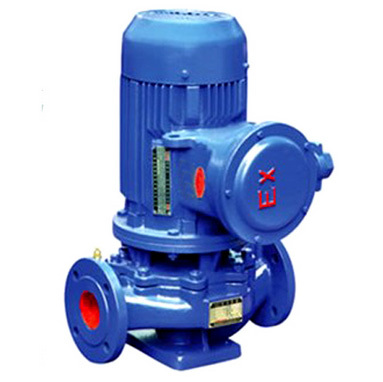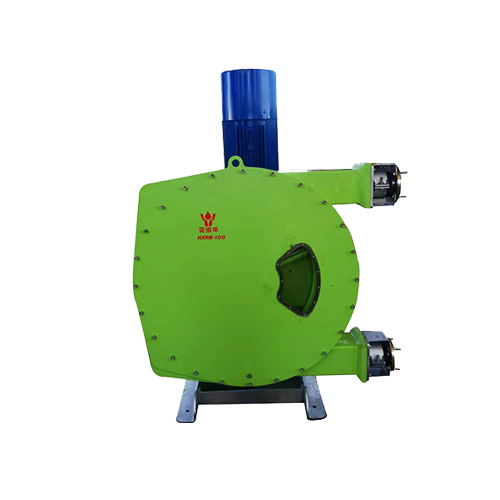ISG Pipeline Pumps vs. Traditional Pumps: A Comprehensive Comparative Analysis
Jul 23,2025

ISG Pipeline Pumps vs. Traditional Pumps: A Comparative Analysis
Table of Contents
- 1. Introduction
- 2. Understanding the Basics of Pumps
- 3. What Are ISG Pipeline Pumps?
- 4. What Are Traditional Pumps?
- 5. Key Advantages of ISG Pipeline Pumps
- 6. Key Advantages of Traditional Pumps
- 7. Comparative Analysis: ISG Pipeline Pumps vs. Traditional Pumps
- 8. Application Scenarios: When to Use Each Type
- 9. Maintenance Considerations for ISG and Traditional Pumps
- 10. Conclusion
- 11. FAQs
1. Introduction
In the realm of industrial applications, choosing the right pump is crucial for efficiency, reliability, and overall operational success. Two types of pumps that often come into consideration are **ISG pipeline pumps** and **traditional pumps**. Understanding the fundamental differences between these two types is essential for making informed decisions that align with specific industrial needs. This article provides a detailed comparative analysis of ISG pipeline pumps and traditional pumps, focusing on their definitions, advantages, applications, and maintenance considerations.
2. Understanding the Basics of Pumps
Pumps play a vital role in various industrial processes by moving fluids from one location to another. They can be classified into several categories based on their mechanism and application. Both ISG pipeline pumps and traditional pumps serve the primary purpose of conveying liquids, but they do so in different ways and with varying levels of efficiency and performance.
3. What Are ISG Pipeline Pumps?
ISG pipeline pumps are vertical, single-stage pumps designed for transporting clean water and other similar liquids. They are engineered for reliability and efficiency, making them suitable for a wide range of applications, including water supply, irrigation, and industrial processes. Key features of ISG pipeline pumps include:
- **Vertical Configuration**: This design allows for compact installation and space-saving advantages.
- **High Efficiency**: ISG pumps are known for their energy efficiency, which helps reduce operational costs.
- **Durability**: Built with high-quality materials, these pumps are designed to withstand various environmental conditions.
4. What Are Traditional Pumps?
Traditional pumps encompass a wide variety of pump types, including centrifugal pumps, diaphragm pumps, and gear pumps. These pumps can be either vertical or horizontal and are commonly used across diverse industries, such as oil and gas, pharmaceuticals, and wastewater management. The main characteristics of traditional pumps include:
- **Versatility**: Traditional pumps can handle a variety of fluids, including those with higher viscosities or corrosive properties.
- **Variety of Designs**: This category includes multiple pump designs, enabling users to select a pump tailored to their specific needs.
- **Proven Technology**: Traditional pumps have been used for many years, offering a wealth of operational experience and support.
5. Key Advantages of ISG Pipeline Pumps
ISG pipeline pumps offer several advantages over traditional pumps, making them a preferred choice for many industrial applications:
- **Space Efficiency**: Their vertical design makes ISG pipeline pumps ideal for installations with limited space.
- **Energy Savings**: These pumps typically operate with lower energy consumption, leading to significant savings over time.
- **Minimal Maintenance**: Due to their simple construction, ISG pumps require less frequent maintenance, allowing operators to focus on other critical tasks.
6. Key Advantages of Traditional Pumps
While ISG pipeline pumps have numerous benefits, traditional pumps also hold significant advantages:
- **Wider Application Range**: Traditional pumps can handle various fluids, including those with particulates or high viscosities, making them suitable for more diverse applications.
- **Customizable Options**: The extensive range of traditional pumps allows customization, ensuring specific needs are met.
- **Established Reliability**: With years of proven performance, traditional pumps offer reliable solutions for various industrial challenges.
7. Comparative Analysis: ISG Pipeline Pumps vs. Traditional Pumps
When comparing ISG pipeline pumps to traditional pumps, several factors come into play:
- **Efficiency**: ISG pumps generally offer higher hydraulic efficiency than traditional centrifugal pumps, translating to lower energy costs.
- **Cost**: ISG pipeline pumps often have a higher initial purchase cost but tend to provide better long-term savings due to their efficiency and reduced maintenance needs.
- **Applications**: For applications requiring high flow rates of clean liquids, ISG pumps outperform traditional options. However, for more complex fluids or conditions, traditional pumps might be necessary.
8. Application Scenarios: When to Use Each Type
Choosing between ISG pipeline pumps and traditional pumps depends on the specific application:
- **ISG Pipeline Pumps**: Best suited for water supply systems, HVAC applications, and fire-fighting systems where clean liquids are used.
- **Traditional Pumps**: More appropriate for oil and gas applications, chemical processing, and wastewater treatment where the fluid properties may vary significantly.
9. Maintenance Considerations for ISG and Traditional Pumps
Maintenance is critical for ensuring the longevity and reliability of pumps. Here’s a brief overview:
- **ISG Pipeline Pumps**: Require periodic inspections and lubrications, but their simple design means lower overall maintenance efforts.
- **Traditional Pumps**: May demand more extensive maintenance due to the variety of designs and potential complexity in their operation.
10. Conclusion
In conclusion, both ISG pipeline pumps and traditional pumps have their unique benefits and applications. ISG pipeline pumps stand out for their energy efficiency and space-saving design, making them ideal for specific scenarios, particularly where clean liquids are concerned. On the other hand, traditional pumps offer versatility and reliability across a broader range of applications, especially in demanding environments. Understanding these differences allows industries to choose the right pump for their specific operational needs, ensuring optimal performance and efficiency.
11. FAQs
1. What are the primary uses of ISG pipeline pumps?
ISG pipeline pumps are primarily used for water supply, HVAC systems, irrigation, and fire-fighting applications.
2. How do traditional pumps differ from ISG pipeline pumps?
Traditional pumps are diversified in design and application, capable of handling various fluids, while ISG pipeline pumps are optimized for clean liquids.
3. Are ISG pipeline pumps more energy-efficient than traditional pumps?
Yes, ISG pipeline pumps are generally more energy-efficient, leading to lower operational costs.
4. What maintenance is required for ISG pipeline pumps?
ISG pipeline pumps require periodic inspections, lubrication, and general monitoring to ensure performance.
5. Can traditional pumps handle viscous fluids?
Yes, traditional pumps are designed to handle a wide range of fluids, including viscous and high-temperature liquids, making them suitable for diverse industrial applications.
Contact Us
E-mail :
sales@yaquanpump.com
service@yaquanpump.com
Phone/WhatsApp:
+44 7301702546
+63 9452052801
Address:
Room B208, Building 2, North Hongqiao Songri Center, No.215 Gaochao Road, Jiading District, Shanghai









